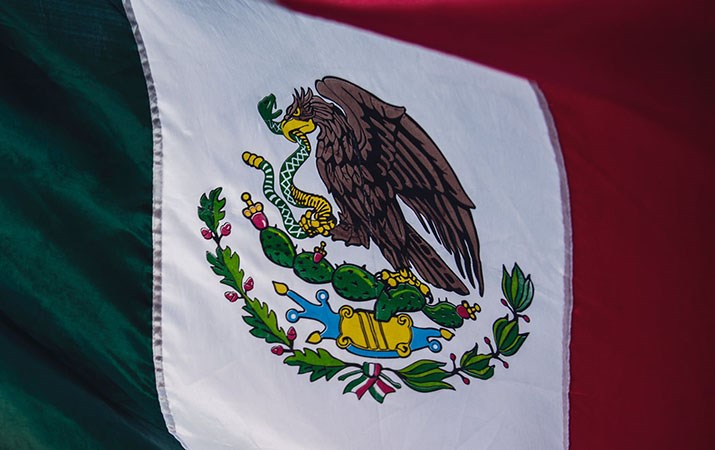
Bond investors looking to maximise their income may have to look further afield to emerging markets.
It sounds like risky territory, but bond managers say the diverse nature of emerging economies means there are plenty of attractive opportunities.
Emerging markets comprise 23 developing nations spanning China, South Africa, Russia and Mexico. The risks and attractions of each are disparate but one of the key factors linking many of these countries is the US dollar.
Watch the Dollar
The fortunes of emerging economies typically ebb and flow with moves in the strength of the dollar. These countries are often reliant exports to the US, and a stronger dollar means lower profits. Meanwhile, many companies and governments in the region issue debt in dollars, which become more expensive to manage when the dollar is stronger.
Anujeet Sareen, manager of the four-star rated Legg Mason Brandywine Global Income Optimiser fund, explains: “If you buy emerging market debt and then the currency weakens by 10%, interest rates will likely rise and that affects your bonds.”
Inflation is another important measure – where it has largely moved sideways in developed markets over the past 10 years or so, there are still significant fluctuations in inflation across emerging economies.
Sareen focuses on areas where he can get the greatest “real yields” – that is the coupon paid on a bond minus the rate of inflation. Mexico is one attractive place to invest, with bonds offering yields of 7% and inflation at 3%, that gives a comfortable real yield of 4%. “We have the highest conviction in Mexico. Its central bank is one of the most hawkish in the world, it has some of the highest interest rates across emerging markets, yet manufacturing is booming and tourism is surging and the currency is weak,” he says.
But there are numerous other considerations when considering this region too, including political strife, economic turmoil and trade tensions across the globe.
Claudia Calich, manager of the M&G Emerging Markets Bond fund, says: “The good thing about this asset class is there are so many countries with different characteristics – and they don’t all depend on the US. Lebanon, for example, is suffering with political protests and high debt levels, while Argentina is undergoing a change of government. The drivers for these economies will be what is happening within the country.”
These two examples may be a case in point for why many investors may not feel bold enough to back emerging market debt. Indeed, Calich is steering clear of Lebanon for now, cautious about whether the country will be able to form a government and push forward with reforms. She also avoids some larger countries which have been slower to implement reforms or which have structural economic issues, and is underweight South Africa and Brazil.
Political Risks
Wim Vandenhoeck, manager of the Invesco Emerging Markets Local Debt fund, meanwhile is cautious on Argentina where there are “heavy issues to be tackled” and uncertainty about a new government, and also on Turkey where he expects inflation to pick up to 12% or more in the coming months.
But Calich says: “But political risk is a factor in any country – for example at the moment we have Brexit and next year the US elections. It is just one of many factors we need to look at when investing.”
Vandenhoeck says a strong programme of reform makes Brazil attractive, despite the fact the country has been in recession and there have been downward revisions to its growth forecasts. In Asia, he likes India and Indonesia, which are more domestically-focused economies and therefore less vulnerable to a global slowdown or trade wars.
And while many fund managers stick to debt issued by governments in emerging markets, Calich has around 30% of the portfolio in corporate bonds in the region too. She says this is a way of accessing countries she is positive on but where government bond yields are low, such as Peru, Columbia and also China where she invests in the debt of industrial and real estate firms.
She has also been investing in so-called Frontier Markets – those which are not classed as developed enough to make it into the Emerging Markets index. There are many risks here, too – many of these countries have only recently started issuing bonds and have high debt levels but that risk comes with the lure of a higher coupon. Calich says she can get yields of up to 9% by investing in the likes of Rwanda, Nigeria, Cameroon and Senegal. The overall yield of the four-star rated fund is 4.7% and it has delivered annualised returns of 9% over the past five years.
Looking Ahead
In the coming months the fortunes of the dollar will continue to influence emerging markets, particularly after a raft of interest rate cuts by the Federal Reserve and with the approach of a US election in 2020. A global economic slowdown is an obvious risk but a weaker dollar could be a boost to emerging countries; although those areas less dependent on the US for loans and exports may be less affected by global goings-on.
There is much to bear in mind when considering emerging markets, but with yields at rock-bottom in many developed countries, the appeal of an inflation-beating coupon may seal the deal for some investors. Vandenhoeck says: “There are some risks, particularly around trade. We’re fairly constructive about the outlook at the moment, maybe not exuberant, but constructive.”






























